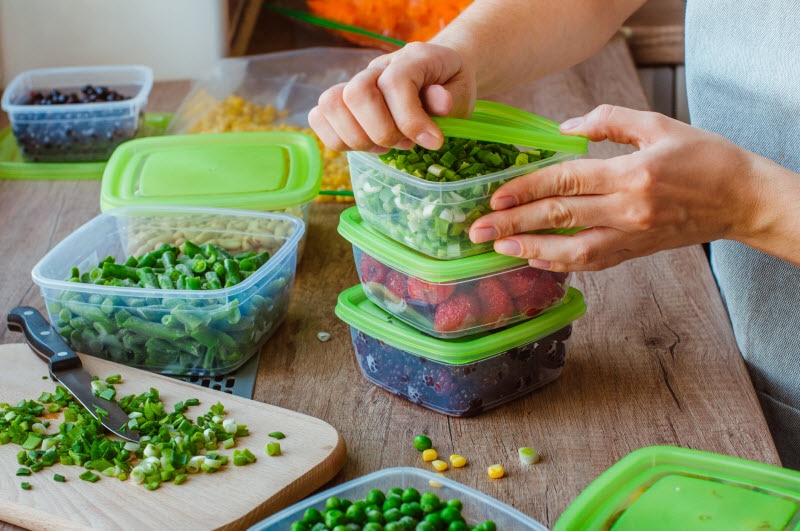Decanting food involves transferring it from its original packaging to storage containers for better organization, preservation, and space-saving. Here’s a guide to the types of storage containers you may need and what foods fit well in each:
- Glass Jars and Containers:
- Ideal for storing dry goods such as grains, pasta, rice, nuts, seeds, and dried fruits.
- Glass containers are also suitable for storing liquids like soups, broths, sauces, and homemade dressings.
- Choose airtight glass jars with wide mouths for easy scooping and pouring.
- Plastic or Glass Food Storage Containers:
- These containers are versatile and come in various shapes and sizes, making them suitable for storing a wide range of foods.
- Use them for leftovers, prepped ingredients, chopped fruits and vegetables, snacks, and meal portions.
- Look for leak-proof and airtight containers for storing liquids and preventing spills.
- Mason Jars:
- Mason jars are excellent for preserving homemade jams, pickles, sauces, and fermented foods like kimchi and sauerkraut.
- They are also suitable for storing salads, overnight oats, yogurt parfaits, and layered snacks.
- Stackable Plastic Bins or Baskets:
- Use stackable bins or baskets to organize and store items in your pantry or refrigerator.
- Categorize foods by type (e.g., canned goods, snacks, condiments) and designate separate bins for each category to keep your storage areas neat and accessible.
- Produce Bins or Crispers:
- Store fresh fruits and vegetables in breathable bins or crispers to help prolong their freshness.
- Opt for containers with adjustable vents or humidity controls to customize the storage conditions for different types of produce.
- Specialty Containers:
- Consider investing in specialty containers for specific food items, such as bread boxes for storing bread and baked goods, cheese containers with built-in cheese boards, and garlic keepers for storing garlic bulbs.
When decanting food into storage containers, consider the following tips:
- Use clear containers whenever possible to easily see the contents and monitor freshness.
- Label containers with the contents and the date of storage to keep track of expiration dates and rotation.
- Opt for stackable and nestable containers to maximize storage space and keep your pantry or refrigerator organized.
- Store similar items together and group foods by category to make it easier to find what you need.
- Regularly clean and sanitize your storage containers to prevent cross-contamination and maintain food safety.
By selecting the appropriate storage containers and organizing your food items effectively, you can optimize your kitchen storage space and keep your ingredients fresh and accessible.

